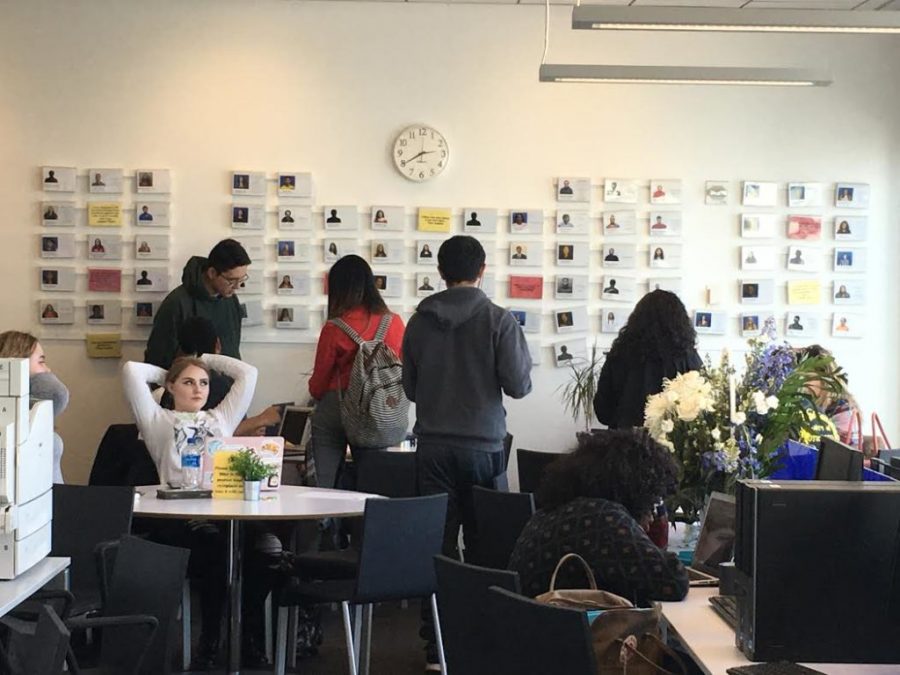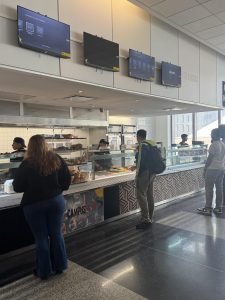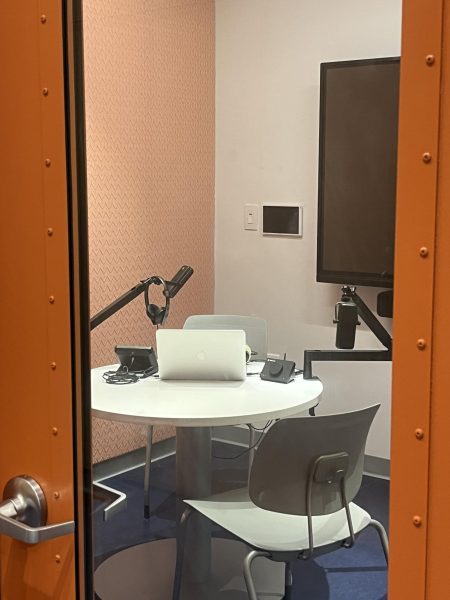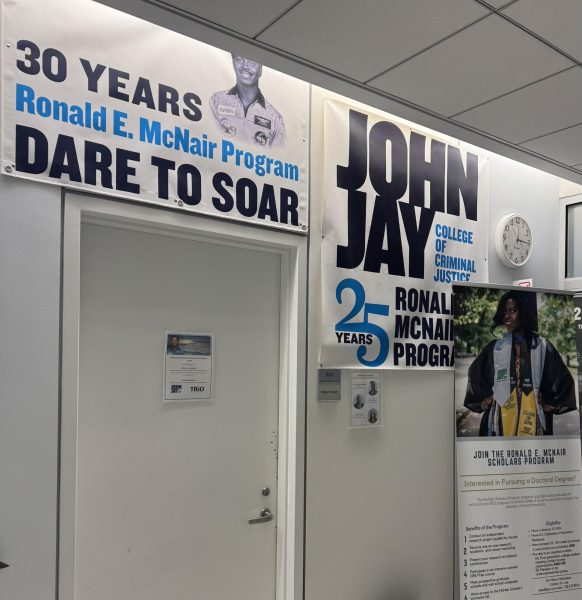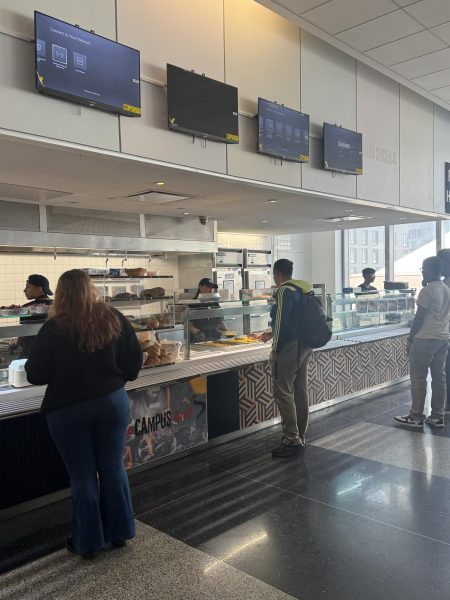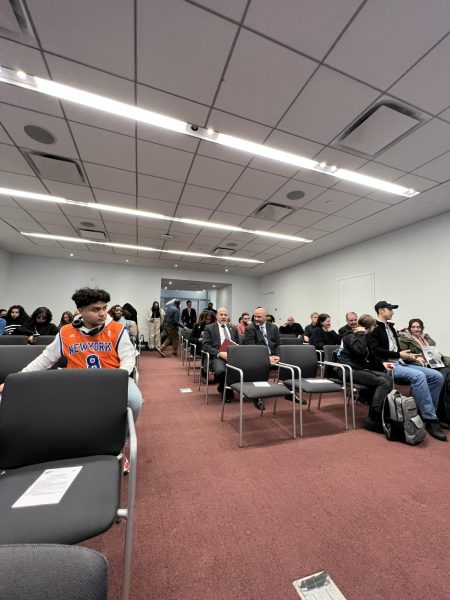Mental Health in the Honors Program
Students in the Honors Program seek out Mental Health Services.
March 21, 2019
Keyboard keys clattered in a hurry. A hushed conversation about the latest political news and upcoming assignments floated across the room. The printer shuddered as it loudly pushed out paper.
The lounge of the Honors Program was full of activity, as it usually was, especially during Community Hour. The main Honors’ lounge has three rows of computers, in various states of disrepair, and 3 tables in the back, where students gather to eat lunch and converse over open laptops.
A similar sight could be found in the auxiliary Honors lounge, which holds only four computer set-ups, two tables, and instead of chairs, two couches. At any time, there could be at least one student in one of the lounges, either working on schoolwork or taking a nap. The lounges presented an image of community and familiarity, but there is something lurking beneath the surface.
For one senior, who chose to go by the pseudonym Stacey, the Honors Program can be a blessing and a curse. She is part of the Macaulay Honors Program, which shares lounges with the John Jay Honors Program. Part of the expectations of the Macaulay Program are maintaining a certain GPA, as well as participating in four seminar classes. Both Macaulay and Honors students are also expected to submit an Honors Capstone project in addition to their major capstone.
The requirements of the programs can weigh heavy on a student, and according to Stacey, “This pressure to perform has taken a toll on my mental health.” For the first time, she sought out professional help. After suffering from several panic attacks and breakdowns in a few of her classes, she realized she needed help. In addition, Stacey often suffered from a significant lack of sleep, which only hindered her mental health.
Stacey first applied with the expectation that being part of the program would come with academic and financial opportunities on campus. The Macaulay Program pays for a student’s tuition in full, which is a major benefit for many students.
As a result, the Program suggests that students avoid taking jobs outside of campus or internships. That condition could not always be satisfied. “Of course, we need to pay for transportation, housing, and basic survival,” Stacey said.
For Cataydra Brown, a senior in the Honors Program majoring in Law and Society and minoring in Africana Studies, the exchange made sense. In return for a scholarship, a laptop, and networking opportunities, she would have a heavier workload.
In addition to the capstone that all Honors students are required to do, they must also take part in several ‘contract courses.’ Contract courses require a full-time faculty member to give an additional workload to the student, along with the regular class work. In one instance, Cataydra was assigned a ten-page paper to fulfill the contract course requirement alongside the fifteen-page final paper assigned for the class.
The extra workload can take a toll on any person, which is why some Honors students reach out to the faculty for help. Unfortunately, there is only so much the advisers in the program can do. The advisors of the Honors Program and Macaulay Program are not psychologists with sufficient credentials to offer guidance.
That’s why the Program works with the Wellness Center to fill in the gap. During orientation, all students, from freshman to senior year, are visited by a representative from the Wellness Center who discusses the counseling options that are available to students. A separate session is also provided focusing solely on mental health.
The Honors Program is focusing on bringing awareness to the issue of mental health and making sure that students are aware that they have the support of the faculty and the Wellness Center.
“We are like the first line of defense,” said Alana Philip, the Administrative Coordinator.
Despite the fact that the best recommendation the Honors Program can offer is a reference to the Wellness Center, it is not always the best option for the well-being of students. In January of 2018, Brown went to an initial questionnaire meeting at the Wellness Center, and she was told that she would hear back in a week to attend meetings with a counselor. She didn’t hear back until May 2018.
On the secretary’s desk at the entrance of the Honors Lounge are dozens of pamphlets and flyers. Many of them are for opportunities around school or coat drives, but what stands out are the flyers for mental health services.
One of them is a bright orange pamphlet for NYC Well, a talk and text services for New Yorkers that offers mental support. A calming blue flyer advertises a meditation session for Macaulay students, which is held every Thursday from 7 p.m. to 8 p.m. These extra services give students more options for help with mental health.
Stacey and Brown aren’t just working on their capstones and schoolwork. The expectations of the Honors Program are to engage in extracurricular programs and activities.
Stacey is part of the Anthropology Club and Brown is both a Vera and J.K. Watson fellow. “The Honors Program is very competitive, and many of the students are achieving great accomplishments, so it’s sometimes difficult to deal with, personally,” Brown said.
For her, it leads to the feeling of imposter syndrome. Like a lot of students, she feels as though she doesn’t deserve to be in the place that she is.
The faculty of the Honors Program are still holding conversations about mental health. Currently, Nathan Lentz, the Director of the Program, is in talks with Thrive NYC to make city-based resources available to John Jay students. In the meantime, the faculty will focus on individual outreach and heightened vigilance based on performance and behavior to make sure no one slips between the cracks.


